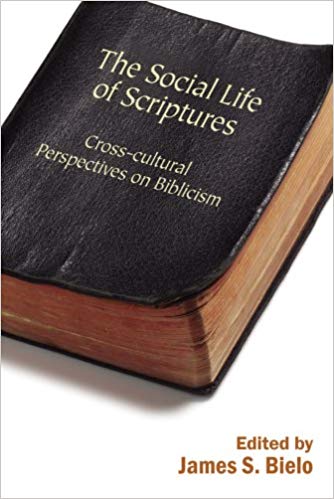
In our series on studying the Bible in Culture. Religion major Will Watson ’21 shares how he studied the Bible in Culture as part of an independent study with Prof. Newton. Be sure to also check out the first and second installments of this series.
During the course of my independent study with Dr. Newton, we covered a wide range of topics that ultimately coalesced in an essay that outlined the process for understanding religion in culture that we had extrapolated throughout our semester of meetings. Initially interested in how different communities conceptualize the Bible and subsequently apply it doctrinally, we moved on to synthesize this idea of Biblicism with my fascination with the use of entheogens in a ritual setting.
Anthropologist James S. Bielo defines Biblicism as:
…a working analytical framework intended to facilitate comparative research on how Christians interact with their sacred texts. Conceptually, Biblicism is intended to theorize the dynamic relationship within Christian communities between two domains: how Christians conceptualize their scriptures, and what they do with them through various forms of individual and corporate practice. In short, Biblicism is about accounting for the social life of the Christians scriptures.
Engaging in a dialectical interchange, I was able to bring together these two concepts and formulate a thesis for why an idea I called, “redaction”, which essentially helps to illuminate the process of religio-cultural interaction, is a far more revealing classification than ‘syncretism’, which, I believe, severely limits meaningful investigation. I framed this thesis around the Mazatec, a people group found in the mountains of southern Mexico, as their use of Salvia divinorum and Psilocybin mushrooms to contact the divine creates a dramatic interpretation of Christianity. Ultimately this prompted me to ask whether there is such a thing as ‘true’ Christianity.

The leaves of Salvia divinorum are thought of by Mazatec curenderos as maintaining some supernatural quality that goes further than their psychotropic applications. They are to be treated with respect and care after having been selected in pairs for a velada. Now, although there exists no written documentation of pre-Colonial consumption of ‘ska María Pastora’, the leaves appear to represent ideas of the spirit of nature that are inconsistent with Western conceptions of The Virgin Mary.
This can be understood in terms of an economy of redaction, where redaction is a social negotiation within a group for determining what ideas are worth keeping around and what ideas are not, in a culturally oriented attempt to ensure survival. With this social economy in mind, cultures that have a political incentive to convert will negotiate new cultural terminology (María) with old meaning, finding a middle ground.
A great example of this is how Russian folk Christianity adopted Mary almost exclusively as the Mother, rather than the Virgin of Western conception; this was due to a long history of a cultural conception and veneration of Mother Earth: another spirit of nature. Employing the same group-level economy of redaction, it would appear that the Catholic conception of Mary is similar enough to the Mazatec’s matriarchal guardian of nature to have been etymologically adopted (for political pressure from Spanish colonials), and then molded into a spiritual entity that still sufficiently represents the spirit of nature that is so integral to Mazatec culture.
In sum, the Catholic etymology is likely a political negotiation that houses a deeply inextricable cultural and spiritual conception of a matriarchal deity, who’s meaning will change only with cultural movement (e.g. Industrialization) and thus has likely remained consistent with the centuries-old agricultural nature of their community.